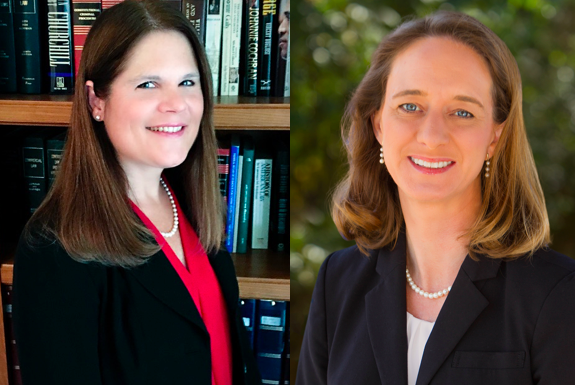| [ubergrid id=1138387] |
Almost exactly two years after being thrust into the national spotlight for sentencing Brock Turner to what many considered an unacceptably lenient sentence, Santa Clara County Superior Court Judge Aaron Persky ’84 M.A. ’85 will face the June 5 countywide vote that could remove him from the bench.
Following a petition that gained the requisite signatures needed to recall the judge, Santa Clara County voters will decide in the June primary whether to remove Persky from office, and, if he is indeed recalled, who should replace him for the remainder of his term, which would end in 2022.
Cindy Hendrickson ’87, an assistant district attorney, announced her intent to run for Persky’s seat in the spring of 2017. Angela Storey, the other candidate vying for the potential opening, is a San Jose civil attorney who entered the race once the recall was officially added to the ballot.
The recall election will mark the culmination of efforts from the recall campaign, spearheaded by Stanford Law School professor and activist Michele Dauber, and Persky’s corresponding push to be retained. That clash has spurred national debate over how to reconcile judicial independence with judicial accountability and social movements seeking greater justice for sexual violence victims.
The stage for the recall election was finalized in February, when the Santa Clara County Board of Supervisors officially placed the recall on the June ballot.
Two recall-related questions will appear on the ballot: one asking voters whether they want Persky to be recalled, and the second asking whether they would want Hendrickson or Storey to replace the judge if the recall were to pass.
While California is one of nine states permitting recalls of members of the judiciary, judicial recalls are still uncommon: A California judge hasn’t been removed via recall since 1932, and the only other instance of the practice occurred in 1913.
Though California does not stipulate specific grounds for the recall of a judge, proponents of the recall posit that Persky has demonstrated a history of judicial bias that favors athletes and other “relatively privileged individuals” accused of violence against women. Recall opponents dispute these claims, pointing to the December 2016 finding by the California Commission on Judicial Performance that there is no evidence Persky demonstrated bias or misconduct.
The Daily spoke with Hendrickson, Storey and anti-recall advocates supporting Persky about the candidates’ qualifications, the current state of the race and what a potential recall could mean for judicial systems nationwide.
Contact Alexa Philippou at aphil723 ‘at’ stanford.edu.
